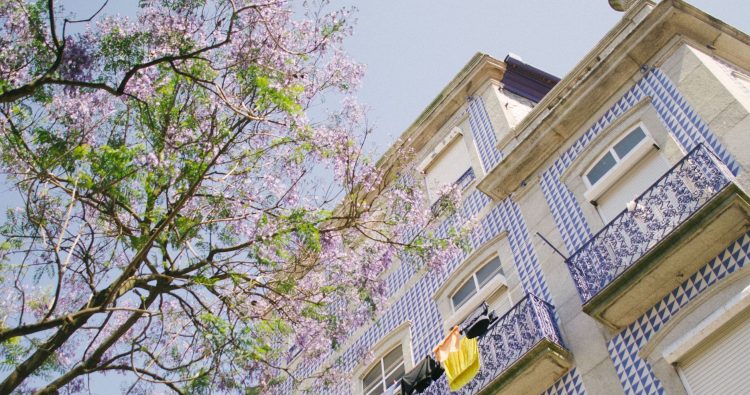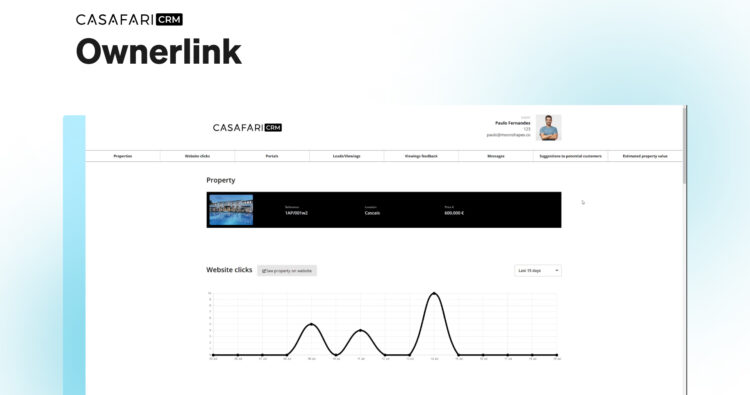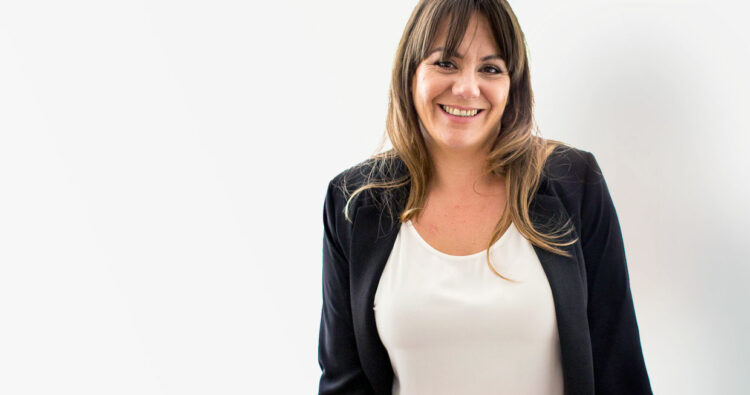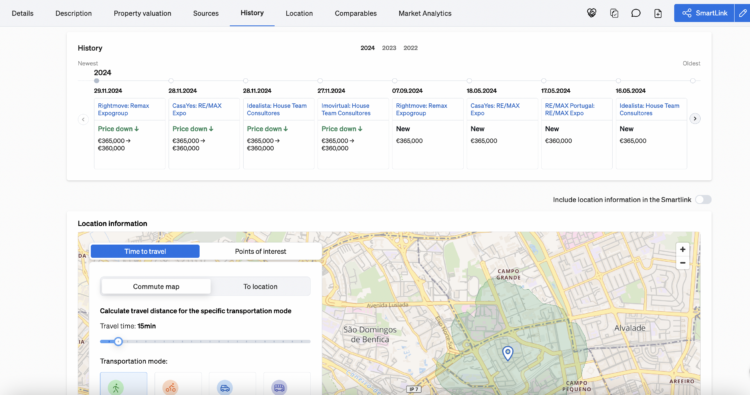We sat down with the CEO of IAD Portugal to talk about what the digital revolution has brought to the market and what’s new for the network for 2022.
Alfredo Valente is currently at the head of IAD Portugal, the largest network of independent property consultants in the country, in what was the French brand’s first international experience.
Here, he spoke to us about expansion plans, how technology facilitates human relations and the need to think. With his foundations in sociology, he balances what is the necessary digitalisation and face-to-face relationship, in what is a business that still closes eye-to-eye.
How has the IAD Network evolved over the last five years in Portugal, and internationally in general?
In Portugal, it has been an incredible adventure. When I arrived at IAD, we were the first and only international IAD experience, so the first export of the model outside of France. This marks, indelibly, the first half of my experience with IAD, because the difficulties in operationalising the model were very great, especially internal.
In the 1st year it was impossible to enter a fundraising or close a transaction, because the systems were not adapted to operate outside France. By the end of 2018, the bulk of the work was done, although we were always trying to evolve the systems. The foundations were in place, and it was the time when the network started to grow and become professionalised, in quality and quantity.
Nowadays, we are at a turning point, when we stopped being a medium-sized company and started to become a large one. At this moment we have 740 consultants in Portugal.
Since that time, do you notice an effective technological evolution?
We are very concerned with the quality of the service we provide to the client, but there is an internal client here, which is the network of consultants and the experience of this user, which is also fundamental. When I say that it is born from the inside out, it is precisely in relation to this technology that we provide to our consultants. As a result, they are able to deliver a better job to the end client.
Clearly, nowadays, the value of the technological component is highly valued, with HD videos, virtual visits, professional photos and the consultant’s ability to understand what the client wants to see, based on the data.
A real revolution is underway, but I think we are only at the beginning.
Here, CASAFARI and all the data and AI platforms can see that we are at the beginning of this digitisation.
This evolution is clear in digital, but we are still in the first phase?
The legislation we have is a bit castrating. For example, the regulation on deeds by videoconference is only a few months old. The legislation still forces us to qualify a digital signature through a mobile key or digital certificate. There is a part of the technological revolution that depends purely on the legislator and is more time consuming.
The rest is very much up to us, but we see around us in this mediation ecosystem a number of Protechs, Fintechs and a lot of creative capacity. IAD was established in 2008, there was no Spotify, Airbnb, just to name a few. In 13 years we have radically changed the way we do business, we were the first to do real estate mediation without a physical network of agencies. I think in the next 6 years the market will change radically. Here, we want to bring simplicity and lightness in the process, like today you rent a house for holidays.
Does IAD have a disruptive role when it comes to technology in this market that was so analogue a few years ago?
A lot of people are already introducing innovation today, but I believe we are one step ahead, we are developing the technology of “after tomorrow”, because the technology of tomorrow is already created. We say that a lot. That ability to find what breaks with the logic of installed routines is the real challenge and one of the components of our DNA.
What’s different about this “after tomorrow” technology?
It is truly focused on the user experience. It will never stop being a deal that is closed between two people, one who sells and one who buys. I believe this will never change in real estate brokerage.
So everything has to be focused on the experience of those components of the business. We look very much at the experience of our consultant, everything has to be easy and light. What they do now by the massive and automatic diffusion, two years ago didn’t exist. The seller and buyer client still doesn’t take full advantage of this technological revolution, because there is still a lot of regulatory bottlenecks.
How do you see this digital-to-face relationship happening in the property market?
We may think it’s a hyper-rational transaction, because it’s usually the biggest purchase of a person’s life, but it’s a purchase that has a lot of emotion, that comes with that physical feeling of when you walk into a house and think “that’s my house”, so it always closes in person and I think it will continue to close.
Until then, we manage to avoid visits that are “not justified” using technology. After that, we work to ease the bureaucratic hell that the buyer is faced with. We have to simplify.
In 2021 you predicted the IAD expansion to the US. How is this process going?
Unfortunately covid came in the way of that goal. For many months, it was not even possible to travel to the USA, saying that, we advanced what we could and now, the decision has been made that we are going to expand to the USA as a continent and not a country. We are going to conquer state by state. The first will probably be Florida, for various reasons, one of them being the proximity to Mexico, where we have already been since 2020. From there, we will progressively cover other states until we have an important strategic position.
It is a market that has many disruptive players, much more than in Europe, as the old continent is much more conservative still in this area. It is a process that is moving at a good pace. The realisation most likely happens this year.
Is there any IAD news you would like to share with us?
Here in Portugal we’re going to be running a huge brand activation campaign and have a huge investment, starting in April. We recently inaugurated our new facilities, Avenida da Boavista, in Porto.
In international terms, leveraging international expansion, beyond the US expansion. A very big bet was the creation of a department, the IAD studio, which is precisely where we do the reflection on the tools of tomorrow and we will see revolutionary things coming out by the end of 2022, to deliver to the market.
In 2021, IAD announced record-breaking turnover. What’s it like to grow at a pandemic time?
From the point of view of the operation, it was positive. On the one hand, IAD (which stands for “Real Estate At Home”) was born to operate remote, so when we were confined, it didn’t affect us in terms of logistics.
From the moment it was possible to continue transacting real estate with some normality, it was frankly favourable for us and 2021 was an extraordinary year. We closed the fiscal year and we grew from €6 million to €10 million from 2020 to 2021. This year 2022 we are on track to close with €16 million, so still 60% growth.
This has to do with two things, growth in the market – to not grow in the Portuguese market you have to do a very bad job – and, on the other hand, internal efficiency. The conversion rate into fundraising is much higher and foreign buyers have also been a significant component of the business volume, above 200,000 Euros, which compares with the 160,000 Euros of the market average. In short, more transactions and at a higher value.
On LinkedIn you wrote that you have developed a “sixth sense”. How important do you consider it to be in real estate?
It has its intuition, but it is fundamentally technical. I started many years ago in Banking and it is from that school that my sixth sense is born, because it was a more intuitive work than technical, since we were confronted with hundreds of different businesses that passed through our hands every day. I grew professionally by analysing and discussing different business models, enabling me today to look at the business with a sense of both intuition and technique.
When I came to IAD, as I explained earlier, the start up was very difficult and it was necessary to understand what was happening to us, how to overcome it, and I continue to work like this, identifying the challenges and seeing how we can overcome them.
Do you apply it to the talent you seek for IAD?
It is fundamental that we look for talent rather than skills. We were created to develop technical skills and then sell them to the labour market. Now it’s completely obsolete, because technical skills are always acquired.
For years I did mostly coaching for entrepreneurs, where my advice was always: if you have a person you identify with, hire them, they will always add. A team that doesn’t clash and doesn’t argue is not really a team, and will develop the business more slowly. If there is a person whose energy level and talent interests me, he comes to my team. What to do, we’ll see later. It is positive to have someone who shares the vision and brings another vision, in a discussion around a project.
We tend to repeat processes because we think we “already know what to do”, and we need people on the side who will give us new visions. It takes humility to lead and to make room for talent. Vision is made of inputs, and when we think we already know everything, we have to avoid creating roadblocks and not compromising the future.
From coaching to leadership and team management, how does a degree in Sociology help you develop the skills you use in business today?
When I say I studied Sociology, most people say it has nothing to do with what I do now. The good effect, for me, was learning to think, from History, Philosophy, Psychology, Law.
This openness to problems and challenges, the culture of reflection, I carry with me to this day and I don’t want it to ever end. I have that sixth sense and I define myself as a generalist. I don’t know anything in particular, “very deeply”.
The specialists give me 10 to 0, but I am frankly competent as a generalist and I think this comes from my academic experience, this orientation towards reflection and not towards the task.
Do you consider that there is a lack of thinking?
I consider, there is a lack of thinking and speculating, of discussing ideas. There is a lack of time. We wake up in the morning and we already have three notifications and we gear it up until we try to get some sleep. There’s a lack of philosophising. If technology is liberating, as I think it is, it cannot enslave us. Technology is to serve, to be free in the exercise of your profession.






